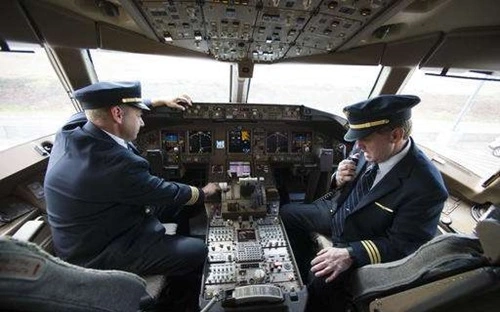No, it is not legal for pilots to engage in personal texting while operating an aircraft. The Federal Aviation Administration (FAA) enforces strict regulations prohibiting the personal use of electronic devices by pilots during flight operations to ensure safety and minimize distractions.
FAA Regulations on Electronic Devices
The FAA’s Advisory Circular AC 91.21-1D addresses the use of portable electronic devices (PEDs) aboard aircraft. This guidance aims to prevent potential interference with aircraft navigation and communication systems. Specifically, Title 14 of the Code of Federal Regulations (14 CFR) § 91.21 prohibits the operation of PEDs on U.S.-registered civil aircraft, with certain exceptions, unless the operator has determined that such devices will not interfere with the aircraft’s systems.
Prohibition of Personal Use
In 2014, the FAA implemented a final rule explicitly banning the personal use of wireless communications devices and laptops by flight crew members during aircraft operations. This regulation applies to all flight phases and aims to eliminate distractions that could compromise safety. The rule was established following incidents where personal electronic device usage contributed to accidents.
Operational Use of Electronic Devices
While personal use is prohibited, pilots are permitted to use electronic devices for operational purposes. For instance, Electronic Flight Bags (EFBs) are authorized as they assist with flight management tasks, such as accessing navigational charts and performing performance calculations. The FAA provides guidelines for the certification and use of EFBs to ensure they do not interfere with aircraft systems.
Consequences of Non-Compliance
Non-compliance with these regulations can lead to severe repercussions. Pilots found using personal electronic devices during flight may face fines, suspension, or revocation of their pilot certificates. Moreover, such actions can result in civil penalties for the employing airline. The primary concern is that personal device usage can distract pilots, potentially leading to accidents.
Conclusion
The FAA’s stringent regulations underscore the critical importance of maintaining a distraction-free cockpit environment. By prohibiting the personal use of electronic devices during flight operations, the FAA aims to enhance aviation safety and prevent incidents arising from pilot distractions.
Frequently Asked Questions
Q. Can pilots use their phones during flight for any purpose?
Ans: Pilots are allowed to use electronic devices for operational purposes, such as accessing flight-related information through approved applications. However, personal use, including texting, is strictly prohibited during flight operations.
Q. Are there exceptions to the prohibition on personal electronic device use?
Ans: The prohibition applies universally to all phases of flight. Exceptions are made only for operational uses that have been evaluated and approved by the FAA to ensure they do not interfere with aircraft systems.
Q. How does the FAA enforce these regulations?
Ans: The FAA conducts regular inspections and monitors compliance through reports and audits. Violations can lead to enforcement actions, including fines and certificate suspensions.
Q. What should passengers do if they observe a pilot using a personal device during flight?
Ans: Passengers should report any concerns to the airline’s customer service or safety department. The airline is responsible for investigating and addressing such issues in accordance with FAA regulations.

